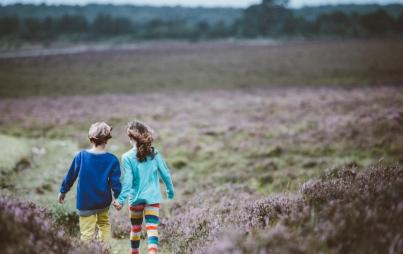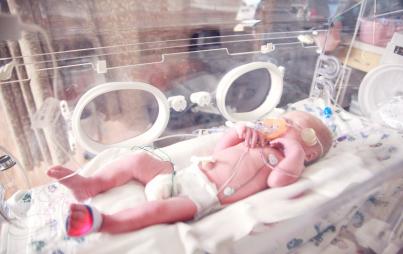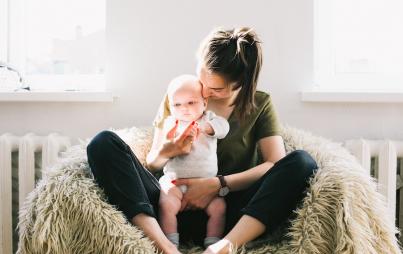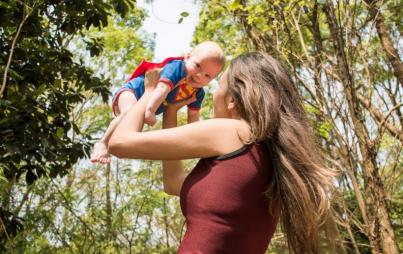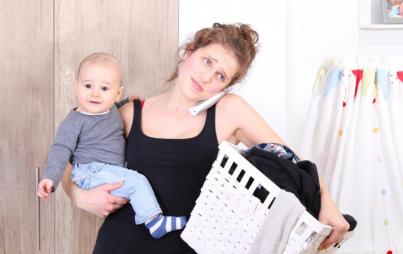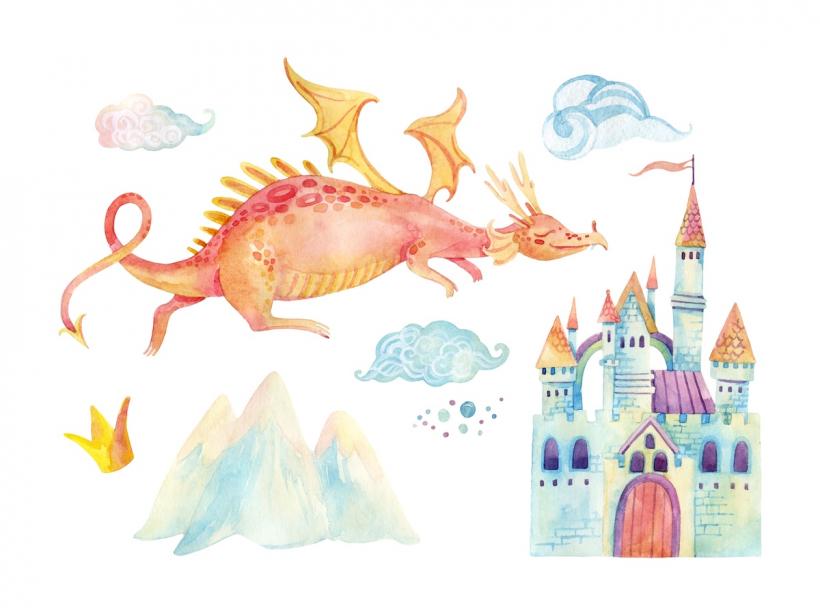
Even as a kid, I think understood the song was a metaphor
Long Reads is a bimonthly feature, showcasing long-form essays.
Not long after our daughter Thea was born, our friends Mary and Dylan came to meet her and brought a plush orange dragon with metallic wings. I launched a sort of campaign to make this dragon Thea’s favorite toy. I love Mary and Dylan. This dragon is not pink. It’s kind and snuggly, but not helpless-looking. I sometimes hold the dragon so that his wings appear to be flapping and I fly him around the room with stops to kiss Thea on her nose.
I like giving Thea’s toys human-sounding names. I imagine myself in a fight against cute-ifying everything for children. More sentimentally, though, the human names remind me of my mom. My little brother had a toy boat with two small sailors floating in it. My mom called them Irving and Leonard. I can remember my little brother asking, in a toddler accent, for Irwing or Lenawd as he splashed gleefully in the bath. My mom lives twenty minutes away, and I get to see her at least a few times a week. Still, having a baby has made it increasingly difficult not to be sentimental.
This cartoon was about a friendly, magical dragon having nautical adventures, but it filled me with a terrible sense of dread, not unlike the feeling I had when a policeman came to talk with us about strangers in vans with candy or a fireman came to remind us to craft an escape plan should our house catch fire.
So, while I kept intending to give this dragon a name like Rutherford or Eleanor, I continued calling him Puff. Before long, in addition to flying him around the room with occasional kiss breaks, I was somewhat sheepishly singing that one verse of “Puff the Magic Dragon” that everyone remembers. The reservations I had about the song had to do with a vague memory of watching an unsettling cartoon about Puff in my first-grade classroom.
The entire memory of the video is cheeriness smashed up against bleakness. In my mind, it was a gray day, but the room was plastered in bright colors. We were six years old, but we were sitting in tidy rows. This cartoon was about a friendly, magical dragon having nautical adventures, but it filled me with a terrible sense of dread, not unlike the feeling I had when a policeman came to talk with us about strangers in vans with candy or a fireman came to remind us to craft an escape plan should our house catch fire.
When I finally looked up the lyrics, desperate for more than the same four lines to sing to Thea, it was the third verse that was at once startling and a familiar answer to the vague discomfort I felt with the song. Dragons live forever, not so little boys./ Painted wings and giants’ rings make way for other toys/ And one grey night it happened, Jackie Paper came no more...
Even as a kid, I think I understood the song was a metaphor, though without knowing that word, and that Jackie Paper didn’t actually die, but stopped being a little boy who wanted to play with Puff. I’d imagine that as a first grader, this made me sad because I hated to imagine the red blanket my mom had stitched with hearts in each corner, or my rag doll, Kathy, both of whom were very real companions to me, sitting abandoned in some forgotten corner of my house.
As a mom, though, the song brushes hard against something; I’ve been struggling to ignore the literal meaning. Not so little boys. Or moms.
In the early days of parenthood, my husband Nick told me that years ago, long before we’d met, he’d read something somewhere that having a child brings a clock into the house and puts a face on it. The image was so haunting and so mechanical that although Nick couldn’t even remember when, let alone where, he’d read this essay — or was it an article? or maybe a short story? — I searched for it again and again.
I finally found it.
The essay first appeared in the New York Times Modern Love column, and was later anthologized in a collection of essays about marriage.
In “How My Son Got His Name,” Rich Cohen writes:
Having a baby changes everything. It makes you see yourself as part of the larger project. It takes you into that section of the Bible dominated by begats. It brings a clock into your house and sets that clock running. It gives time a face, and that face sits on your baby, as the clouds sit on the sea. It makes the future real. It makes your mind race ahead, far ahead, into the middle of the century, when you will be dead. It makes you know for certain that you are going to die.
Though, when I showed it to Nick, he remembered nothing else of the essay, which is about the Old Testament and the Yankees and the NICU and childbirth classes and marriage. He wasn’t entirely convinced, despite the near verbatim phrase about a clock coming into the house, that it was the essay he’d read. I suppose it’s possible that he read something else, some other essay or article or short story where the author landed on this same metaphor, so haunting because it is so viscerally undeniable.
When I first re-discovered the lyrics to “Puff the Magic Dragon,” I reported back to my mom, incredulous that such a song was out in the world for any sweet innocent child to hear.
Gently, my mom suggested that refusing to acknowledge any emotion, even a hard one, isn’t healthy for children and that it might not work out well were I to make a full-time job of protecting Thea from sadness.
It is so tempting to shelter Thea from knowledge of loss, as though by doing so I might protect her from loss itself. I wish the world were one where no beloved pet would die; no stuffed animal lose his ability to come to transport a child to safety. A world without death, the end of childhood. The older I get, the more afraid I am of losing what matters most to me — the people I love. But, never before has the fact of our mortality been so horrifying as it is when I hold sweet, innocent, soft Thea as she drifts to sleep.
Most of the milestones she reaches are so exciting that the threat of loss is, at least at the moment, buried deep below the excitement of watching her master a new skill — the relief of the first night’s uninterrupted sleep in more than six months, the wonder in her eyes as she becomes increasingly aware of the world around her, the thrill of being able to communicate more clearly with one another. But there are times — like when I’m changing her diaper, and I notice the skin on her little baby legs is not quite as soft as the skin on her little baby belly, when I see that already the world has toughened her up a little bit — that I feel the fear of loss deep in my gut.
Your job, I remember my mom telling me, is to prepare her to live in a world without you.
Recently, my brother was visiting from Minneapolis and, as often happens with far-flung family, we began to rhapsodize about the landmark memories we share of our childhood. The fort in a swamp that we carpeted with scraps of old rugs, oblivious to the mold that quickly took hold. The time we fought to the teeth — literally — over space on the pullout couch. When Clay drew on my clothes with a permanent marker. When I tried to turn myself into the police for failing to yield in a crosswalk. The summer my mom read us The Yearling chapter by chapter.
“Oh,” I shuddered, “that was too sad.”
In tandem, we listed off an entire genre of childhood literature — Where the Red Fern Grows, Black Beauty, Old Yeller, Shiloh, and I shared, my recent discovery of “Puff the Magic Dragon”’s devastating lyrics. I joked that I’d learned to understand the telltale book cover with earnest animal eyes as a sign of a story I simply could not stomach. When I had to read Where the Red Fern Grows for school, I sobbed for hours. I followed our cocker spaniel around the house, hugging and stroking her incessantly. My dad was traveling for work, and so I spent the next three nights in my mom’s bed.
“You know,” my mom said at dinner, “a lot of children have to face the death of a pet, and those books are a way for them to understand that they are not alone.”
And all of us, if we’re lucky to live long enough and to love fully enough, will have to face a loss much deeper, darker, and more complex than a pet.
To truly prepare Thea to live without me, of course, I have to show her how to face loss honestly, sincerely, entirely, but also bravely.
I’ve been thinking about an expression I sometimes hear parents using to refer to grown kids who have actually begun an independent life: “fully launched.” What does that mean? Would my mom consider me fully launched? Surely — I haven’t lived at home for fifteen years. I have a house, a husband, my own child. But, no, I will never be ready to live in a world without my parents.
Every day I am grateful that my parents are in good health, that I can watch them crawl after Thea on the floor, lift her high above their heads as she squeals and giggles. What a gift.
Once I had Thea, I often found myself holding her tiny body as she fell back to sleep after nursing, hoping desperately that if something happened to me and she never got to remember me, she’d still feel protected by the enormous love that filled her bedroom as I held her.
There is a mole on my pale, Irish elbow I need to get checked. I try to drive more carefully, not just when Thea is in the car.
I was in high school when the first Harry Potter book came out. My mom read the series to my little brother, who aged, year by year, with Harry. Although I had friends who read the books, even some who went to midnight release parties at the local bookstore, I was uninterested. The books seemed fine for kids, but the hours I might spend reading thousands of pages about wizards would surely be better spent reading Faulkner or trying for the third time to finish One Hundred Years of Solitude.
I’ve met a lot of adults, particularly those who consider themselves to be writers, or at least individuals of refined literary taste, who sneer at the series. I am a convert. I picked up the first book when I was at a writer’s conference, lonely living among strangers in a college dorm at 27. At the time, I was going through a big Joseph Campbell phase — looking for Carl Jung’s legacy, mythological allusions, epic battles between good and evil, ambiguous magical realism everywhere. It was initially Rowling’s surprisingly rich, archetypal world that drew me in, but when I finished the seventh book in the series three weeks later, sobbing while I ran off syllabi on the English department copy machine, it was the unwavering love that is the root of magic in Rowling’s world that had me rapt.
I fell into J. K. Rowling’s world around the time I realized that I wanted to have children, not just someday, but soon. Aside from the legendary story of the series being rejected by dozens of publishers and Rowling’s perseverance as she lived on government assistance, I still don’t know much about Rowling’s personal life. What is so blazingly clear from her writing, though, is that the books are borne out of a mother’s love. Once I had Thea, I often found myself holding her tiny body as she fell back to sleep after nursing, desperately hoping that if something happened to me and she never got to remember me, she’d still feel protected by the enormous love that filled her bedroom as I held her.
You Might Also Like: I Went On A Kid-Less Vacation And All I Got Was An Emotional Breakdown (And Some Pretty Great Clarity)
Not long after Thea was born, just before Oliver Sacks’s death, Radiolab re-broadcasted several of the episodes on which he’d appeared. Over dinner, I began describing one of the stories Sacks had told to a friend of mine. One of Sacks's patients was an older woman who had moved to the United States from Ireland at the age of five after both of her parents had died. She was raised by a forbidding maiden aunt and had no memories of her childhood in Ireland. Late in life, after a stroke, she began to hear music — loud, clear, music, as though it were coming from the radio. Only, there was no radio. At first, she feared she had a problem with her hearing — something like tinnitus — and then later, worried she was suffering from a psychotic break. Instead, Sacks determined that she was having auditory hallucinations.
“Oh no,” my friend interrupted, “is this going to be a sad story?”
I assured her it was not, and explained that after much research, Sacks determined that the woman was hearing songs that were popular when she was a child in Ireland. The lilt of the songs she heard in her head suggested that she was probably remembering her mother’s voice singing her the songs.
“Amanda,” my friend insisted, distressed, “that is a sad story.”
She sighed. This was exactly the ending she’d feared when she asked the question.
I didn’t think this was sad at all; what was sad was that the woman had never really known her parents. What was amazing was that her mother’s love (and I could just imagine her mother sitting in a quiet, dark room, singing to her just as I do to Thea, hoping to soothe her tiny baby to sleep, exuding love) had survived against all the odds. It had survived the “wall” of our earliest consciousness. These songs had traveled with her across the ocean, through a somewhat austere childhood as an orphan, through adulthood, and into her own old age. When Sacks writes about this patient in The Man Who Mistook His Wife for a Hat, he explains:
She had always felt this as a keen and painful sadness — this lack , or forgetting, of the earliest, most precious years of her life. She had often tried, but never succeeded, to recapture her lost and forgotten childhood memories. Now, with her dream, and the long "dreamy state" which succeeded it, she recaptured a crucial sense of her forgotten, lost childhood. The feeling she had was not just "ictal pleasure," but a trembling, profound and poignant joy. It was, as she said, like the opening of a door - a door which had been stubbornly closed all her life.
Like the spell that Harry’s mom casts on him, making him the boy who lived, and the boy who is nurtured and empowered by the magical love of a parent for a child, these songs seemed like a salve. Like the protective spell that protected Harry from evil.
It’s tempting to write off this conceit of Harry Potter as cheesy, but if there is magic in this world — and I can’t go through life thinking there isn’t — what else but love could bring it forth?
In the week before I went into labor, I found myself uncharacteristically worried about dying. I was a healthy, 32-year-old who’d had an uneventful pregnancy. Maternal mortality is low in the United States — low in all developed countries compared to what it once was. But the closer I got to my due date, the more frequently a line from Macbeth would march through my mind: “Macduff was from his mother’s womb untimely ripped!” In the Patrick Stewart film I used to show my ninth graders, Michael Feast delivers this line with such violence, that it makes something about the play that always used to seem like kind of a stretch more clear. Oh, I thought, he really was ripped. Of course, they didn’t save the mother. As a student, it always seemed kind of strange that someone wouldn’t be considered “of woman born” if his mother had had a c-section, and I assumed this was some convenient, if antiquated, way of acrobatic thinking to fulfill one of the play’s original prophecies. It probably is, but it’s also easier to conceptualize of a birth in which a living woman is cut in half and left to die as seeming less human than a vaginal birth.
Fueled by anxiety as my pregnancy crept into its 42nd week, I sobbed to Nick. I was furious that he could not understand the fear I felt. I tried to explain that I was about to do something that I’d heard was excruciating. Although I couldn’t articulate it then, I felt angry that this endeavor we’d undertaken together — becoming parents — would be so different for me than for him. I felt so alone, separated both from my old self and from the mother I hoped to become, separated from Nick.
In a moment I’m simultaneously ashamed of and willing to forgive myself for, I cry-whispered, “what if I die?”
Until my water broke, my fears about labor had mostly been about pain. I thought I’d try to go without an epidural, and I was (I now realize, rather narcissistically) worried that I’d cave.
Thea was two weeks late, so I was worried she might be very large and that I’d have to have a c-section, but even this fear was much more grounded in the insane notion that vaginal births are somehow “better,” rather than understanding what an unplanned c-section might mean for my baby’s health or what trying to learn to breastfeed, cope with sleep deprivation, and new motherhood while also recovering from major surgery might mean. Later, when I finally was in labor, it was as though my anxiety about dying had anticipated something I would feel instinctively.
It didn’t matter what happened to me; I had to get Thea out safely.
The midwife who’d been with me for the first ten hours of labor, in what I can only imagine was an attempt to boost my morale, began asking about marathons I’d run. I managed to convey, between contractions, that there was really no comparison. First, if you’re running a marathon in any sensible way, you’re not in actual pain until the very, very end. You’ve trained for the race; you have an idea of what kind of pace you can sustain for a 26-mile race. You know where to expect the finish line and roughly when you’ll arrive there. And, the biggest difference of all, even if you’re a professional runner with a large paycheck on the line… It’s just a race. You can stop if you have to, and no one will die.
Having Thea has stripped bare the illusion that time is not really passing, that I am essentially the same person I was when I spent long, muggy, summer afternoons reading How Green Was My Valley sprawled on my bedroom floor and eating ice cream sandwiches by the box after my parents went to bed. I am not even the same person I was when I took a pregnancy test in the bathroom of the small house my husband and I shared when we first got married, or the person I was sitting at Modern Apizza waiting to check in for my scheduled induction.
Watching Thea begin to smile, laugh, roll over, inch forward on her belly, crawl, pull-up, repeat syllables with animated urgency, and take early, tentative steps makes it impossible to ignore just how fast time is passing.
And then, something happened that could not have been more perfect.
On the first day of fall, I walked with Thea to our local bookstore. I was hoping to find a book about stars or a book with flaps for her to lift up and peek behind, but I found neither. Instead, we came home with a copy of a Puff the Magic Dragon board book. It’s just the lyrics to the song with illustrations. When I first became distressed about the lyrics to the song, I did a lot of reading about the song’s reception and history of controversy and learned that an alternate version of the song described Puff finding new children to play with after Jackie Paper came no more.
When we got home from the bookstore, I set Thea down on the rug and opened the book. It seemed weird to read the lyrics I’d sung so many times, so I began to sing. Puff the Magic Dragon… As I sang, Thea crawled from her spot next to me over to Puff himself, who was standing in the opposite corner of the room. Of course, I know I have to acknowledge that this may well have been a coincidence, but I also thought that perhaps hearing the song reminded her of the stuffed animal I usually held up while singing.
I began to hope that the book would have that alternate ending, that the last illustration would not be Puff slumped alone in his cave. While, no, the book did not end with some made-up lyrics about other children finding Puff, neither did it end with Puff in the cave. Of course! The chorus ends the song, and so, the last page shows a grown up Jackie Paper watching from a distance as his daughter approaches Puff with a cautious smile on a misty fall day and the words: “Puff the Magic Dragon/ lived by the sea/ and frolicked in the autumn mist/ in a land called Honalee.”



